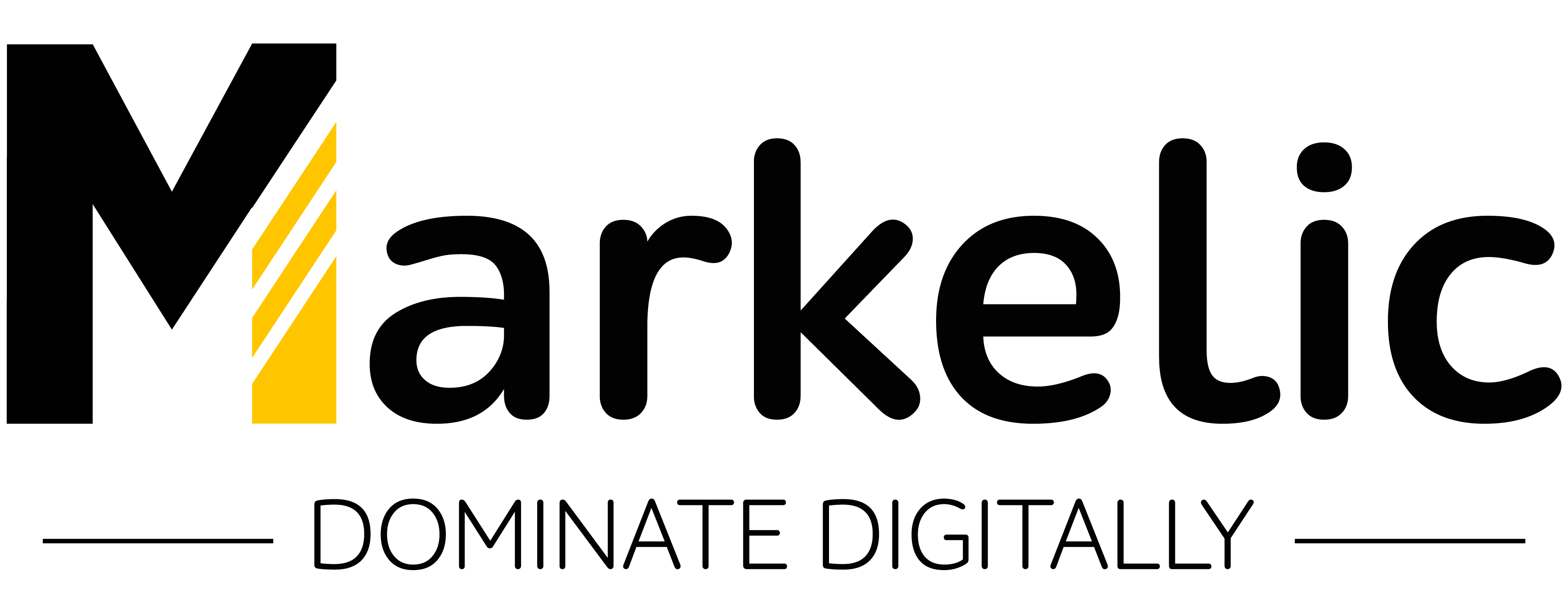Digital marketing roles and responsibilities play a pivotal role in shaping the online presence of businesses in today’s fast-paced digital world. From crafting engaging content to managing social media campaigns, professionals in this field wear many hats. They are the driving force behind brand visibility, lead generation, and customer engagement. Understanding these roles is essential for businesses looking to thrive in a competitive online landscape.
Digital Marketing Roles and Responsibilities
At Markelic.com, we delve into the diverse responsibilities of digital marketers and their impact on business growth. Whether it’s strategizing SEO initiatives, leveraging analytics for informed decisions, or running successful email marketing campaigns, these experts ensure every aspect of the digital strategy aligns with business goals. Let’s explore the dynamic roles and responsibilities that make digital marketing a cornerstone of modern business success.
Key Digital Marketing Roles Explained
Digital marketing roles encompass a wide range of expertise, each contributing uniquely to a brand’s online success. The Digital Marketing Manager oversees campaigns, aligns strategies with business goals, and ensures team collaboration. SEO Specialists optimize website content and structure to improve search engine rankings and drive organic traffic. Content Strategists craft engaging, targeted materials that resonate with audiences and enhance brand visibility.
The Social Media Manager creates and manages social media campaigns to foster engagement and build a loyal community. PPC Specialists design and execute paid advertising strategies to maximize ROI. Email Marketing Specialists develop personalized campaigns that nurture leads and convert them into customers. Finally, Analytics and Data Experts analyze performance metrics, provide actionable insights, and optimize marketing efforts. Together, these roles fulfill the core responsibilities of digital marketers, including strategy execution, campaign monitoring, and continuous optimization, ensuring businesses thrive in the competitive digital landscape.
Crafting Comprehensive Marketing Strategies
Digital marketers craft comprehensive strategies to drive brand success and achieve measurable results. They implement and monitor campaigns across channels, ensuring alignment with business objectives and audience needs. By driving organic and paid traffic, marketers enhance visibility and attract targeted users to boost engagement and conversions.
Analyzing performance metrics takes center stage as marketers use data to refine tactics and improve campaign outcomes. This process of continuous improvement ensures strategies stay relevant and effective in an ever-changing digital landscape. To excel, professionals rely on a combination of skills, including technical expertise in SEO, PPC, and analytics, creative abilities for content development, and strong communication for collaboration. Together, these elements make crafting comprehensive marketing strategies a cornerstone of digital marketing success.
Technical Skills: SEO, PPC, and Data Analysis
Digital marketers rely on technical skills like SEO, PPC, and data analysis to build and execute impactful strategies that drive measurable results. They optimize websites to rank higher on search engines, craft pay-per-click campaigns to attract targeted traffic, and analyze data to identify trends and opportunities for growth.
In addition to these technical abilities, marketers enhance their impact through creative skills in content creation and design, producing engaging materials that capture audience attention. They also leverage soft skills like communication and problem-solving to collaborate effectively and adapt to challenges. These competencies highlight why digital marketing roles are essential for business growth, as they ensure businesses can compete, innovate, and connect with their audiences in today’s digital-first world.
Boosting Brand Awareness and Engagement
Digital marketers actively boost brand awareness and engagement by implementing strategies that connect with target audiences across platforms. They create impactful campaigns to captivate users, sparking interest and fostering loyalty. By generating leads and driving conversions, marketers transform awareness into tangible business outcomes, ensuring measurable success.
Staying ahead requires marketers to consistently stay competitive in the digital landscape, adapting to changing algorithms and consumer behaviors. Embracing emerging trends in digital marketing, such as AI-powered tools, video content, and interactive experiences, allows brands to stand out and resonate with modern audiences. These efforts collectively strengthen a brand’s presence, driving growth and establishing long-term relevance.
AI and Automation in Marketing
Marketers harness the power of AI and automation in marketing to streamline campaigns and deliver personalized customer experiences. These technologies enable automated email sequences, predictive analytics, and chatbots that enhance engagement and save time. Alongside these advancements, marketers capitalize on video marketing and interactive content to capture attention and increase audience retention.
The rise of voice search and conversational marketing highlights the importance of optimizing for emerging consumer behaviors, allowing brands to engage users through smart devices and natural interactions. Aspiring professionals can explore these trends while determining how to choose the right digital marketing career path, aligning their skills with industry demands. AI-driven tools and innovative approaches continue to transform the landscape, offering exciting opportunities for growth and creativity.
Assessing Your Interests and Strengths
Marketers achieve success by first assessing their interests and strengths to identify the digital marketing roles best suited to their skills. Understanding personal aptitudes, such as creativity, analytical thinking, or communication, helps professionals focus on roles like content creation, SEO, or data analysis. To build expertise, they actively explore certification and training programs, gaining hands-on knowledge and industry-recognized credentials.
As the industry evolves, professionals must adapt to the future of digital marketing roles, which increasingly rely on AI, automation, and innovative technologies. By aligning personal strengths with market demands and staying committed to lifelong learning, digital marketers position themselves to thrive in a dynamic and rewarding field.
Evolution of Digital Marketing Responsibilities
The evolution of digital marketing responsibilities reflects the rapid advancements in technology and changing consumer behaviors. Marketers have shifted from basic online promotion to managing complex, data-driven strategies that include content optimization, automation, and personalized customer engagement. These expanding roles create exciting opportunities in a dynamic industry, offering professionals the chance to innovate and lead in a highly competitive landscape.
To succeed, digital marketers must embrace continuous learning and adaptability, mastering both traditional and emerging techniques. By honing their skills and staying ahead of industry trends, they can effectively drive business growth. Ultimately, mastering digital marketing roles and responsibilities empowers professionals to shape the future of marketing and make a lasting impact in this ever-evolving field.


